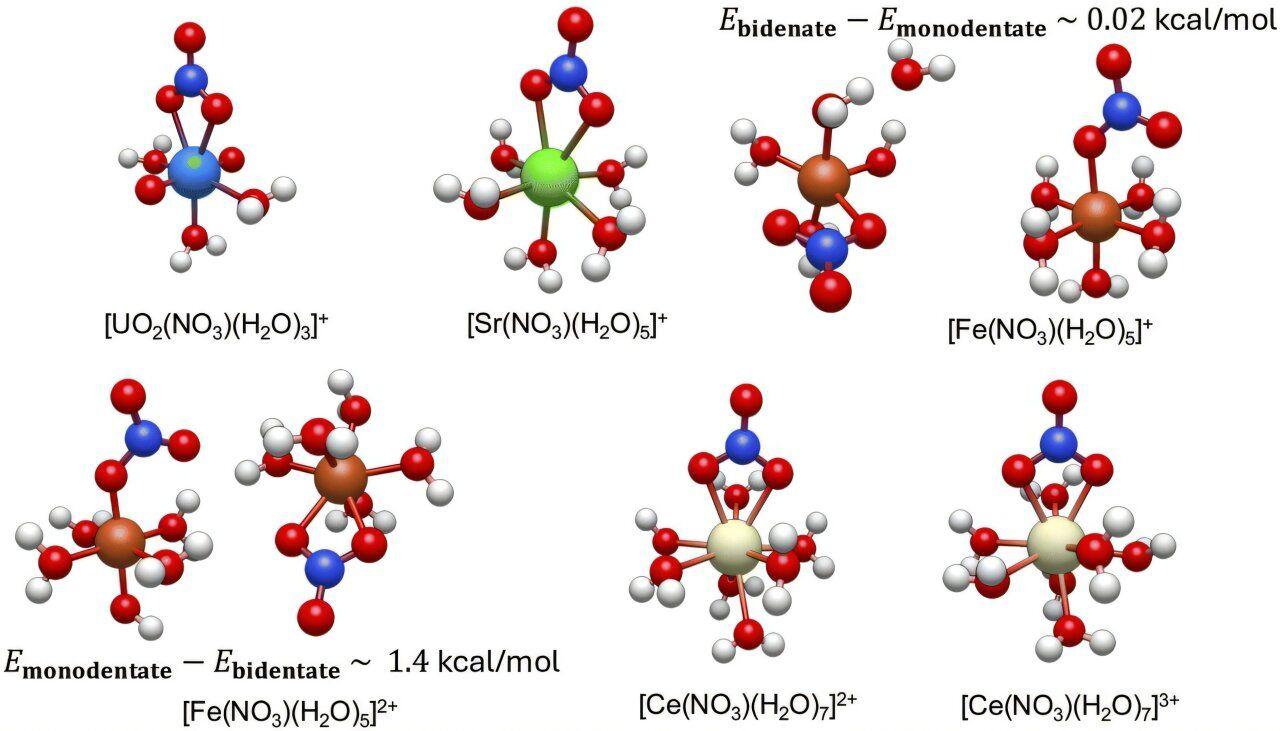AI-Powered Research to Advance Understanding of Low-Level Radiation Exposure Risks
2 Sources
2 Sources
[1]
AI-powered research to advance understanding of radiation exposure risks
Keck Graduate InstituteSep 20 2024 Keck Graduate Institute (KGI), a member of The Claremont Colleges, has been awarded a significant grant from the Department of Energy to investigate the effects of low-dose radiation on human beings. The research will advance society's understanding of the collateral and long-term effects of radiation exposure, whether through an individual's vocation or by way of common treatments for certain forms of cancer. Entitled "AI-facilitated assessment of exosome-mediated bystander effects of low-dose ionizing radiation," the award is for three years and $750,000 and will begin in September. Los Alamos National Laboratory was awarded the same amount and will work with KGI on the project. Principal investigator Animesh Ray, professor of systems biology and genomics who has been with KGI since 2001, leads a team using artificial intelligence to study the effects of low-dose radiation on humans. The ultimate goal is that this work might help create and establish a policy standard for what is considered a safe limit of low-level radiation exposure. Many people are exposed to radiation in their work. This runs the gamut from people who work with nuclear reactors to pilots to those who work with X-rays and, of course, disasters such as Three Mile Island and Chornobyl. Strangely, we have seen that low radiation doses can have a stronger negative effect on health than predicted from models based on higher radiation doses. This is a mystery we are delving into." Animesh Ray, Professor, Systems Biology and Genomic, Keck Graduate Institute For example, Ray and his team are interested in the effects of low-dose radiation on cancer treatment. "Research shows that if you expose a single cell to radiation, its effect travels outside the cell. The irradiated cells can influence normal cells not exposed to radiation, and sometimes these unirradiated cells even respond as if the cell was directly hit by the radiation," Ray says. "The DNA gets modified and damaged from this. Although sometimes it can be repaired properly, other times it can die or mutate to potentially cause cancer. Then, while trying to remove the cancer with radiation, it could make new cancer. We call this the bystander effect, where unirradiated cells getting information from irradiated cells may produce these negative effects. This is what we want to study." A team of scientists led by Dr. Kumkum Ganguly at Los Alamos National Laboratory, KGI's partner on the project, will produce the irradiated cells to be studied by KGI's research team using single-cell RNA sequence analysis. The KGI team, composed of current students and postdoctoral researchers, will analyze the data using novel artificial intelligence techniques. "The grant is not for solving a problem but for understanding a problem," Animesh says. "The standard for the amount of radiation people can be exposed to came from studies done decades ago, but the work to figure out how low dose radiation produces biological effects has been difficult and long overdue since the human genome revolution began." Keck Graduate Institute
[2]
Keck Graduate Institute Awarded $750,000 Grant from the Department of Energy to Study Low-Level Radiation Effects
Claremont, CA, Sept. 19, 2024 (GLOBE NEWSWIRE) -- Keck Graduate Institute (KGI), a member of The Claremont Colleges, has been awarded a significant grant from the Department of Energy to investigate the effects of low-dose radiation on human beings. The research will advance society's understanding of the collateral and long-term effects of radiation exposure, whether through an individual's vocation or by way of common treatments for certain forms of cancer. Entitled "AI-facilitated assessment of exosome-mediated bystander effects of low-dose ionizing radiation," the award is for three years and $750,000 and will begin in September. Los Alamos National Laboratory was awarded the same amount and will work with KGI on the project. Principal investigator Animesh Ray, professor of systems biology and genomics who has been with KGI since 2001, leads a team using artificial intelligence to study the effects of low-dose radiation on humans. The ultimate goal is that this work might help create and establish a policy standard for what is considered a safe limit of low-level radiation exposure. "Many people are exposed to radiation in their work," he says. "This runs the gamut from people who work with nuclear reactors to pilots to those who work with X-rays and, of course, disasters such as Three Mile Island and Chornobyl. Strangely, we have seen that low radiation doses can have a stronger negative effect on health than predicted from models based on higher radiation doses. This is a mystery we are delving into." For example, Ray and his team are interested in the effects of low-dose radiation on cancer treatment. "Research shows that if you expose a single cell to radiation, its effect travels outside the cell. The irradiated cells can influence normal cells not exposed to radiation, and sometimes these unirradiated cells even respond as if the cell was directly hit by the radiation," Ray says. "The DNA gets modified and damaged from this. Although sometimes it can be repaired properly, other times it can die or mutate to potentially cause cancer. Then, while trying to remove the cancer with radiation, it could make new cancer. We call this the bystander effect, where unirradiated cells getting information from irradiated cells may produce these negative effects. This is what we want to study." A team of scientists led by Dr. Kumkum Ganguly at Los Alamos National Laboratory, KGI's partner on the project, will produce the irradiated cells to be studied by KGI's research team using single-cell RNA sequence analysis. The KGI team, composed of current students and postdoctoral researchers, will analyze the data using novel artificial intelligence techniques. "The grant is not for solving a problem but for understanding a problem," Animesh says. "The standard for the amount of radiation people can be exposed to came from studies done decades ago, but the work to figure out how low dose radiation produces biological effects has been difficult and long overdue since the human genome revolution began." ### About Keck Graduate Institute Keck Graduate Institute, a member of The Claremont Colleges, is a recognized leader in biotech, life sciences, and healthcare education. As a global graduate school, KGI develops leaders who work to solve complex societal issues, provide community-based outreach that improves the quality of human life, and advance health and science technology. Nick Simonton Keck Graduate Institute (909) 607-2308 [email protected] Market News and Data brought to you by Benzinga APIs
Share
Share
Copy Link
Keck Graduate Institute receives a $750,000 grant from the Department of Energy to study low-level radiation exposure using AI and machine learning techniques. The research aims to improve our understanding of radiation effects on human health.

Department of Energy Funds Innovative Radiation Research
The Keck Graduate Institute (KGI) has been awarded a substantial $750,000 grant by the U.S. Department of Energy (DOE) to conduct groundbreaking research on the effects of low-level radiation exposure on human health
1
. This three-year project, led by Dr. Animesh Ray, Professor of Computational Biology at KGI, aims to leverage artificial intelligence (AI) and machine learning techniques to advance our understanding of radiation risks.Innovative Approach to Radiation Research
The research team plans to employ a novel strategy that combines computational biology with experimental approaches. By utilizing AI and machine learning algorithms, they hope to analyze vast amounts of data from both published literature and new experiments
2
. This innovative methodology is expected to provide deeper insights into how low-level radiation exposure affects human cells and DNA.Collaboration and Expertise
KGI's research efforts will not be conducted in isolation. The institute is set to collaborate with experts from various fields, including radiation biology, bioinformatics, and AI. Notable partners include researchers from Colorado State University and the University of California, San Francisco
1
. This interdisciplinary approach is designed to ensure a comprehensive examination of the complex interactions between radiation and biological systems.Potential Impact on Public Health and Safety
The outcomes of this research could have far-reaching implications for public health and safety policies. By improving our understanding of low-level radiation exposure risks, the project may contribute to more informed decision-making in areas such as nuclear energy, medical imaging, and space exploration
2
. The findings could potentially lead to updated safety guidelines and better protection measures for workers in radiation-exposed environments.Related Stories
AI's Role in Accelerating Scientific Discovery
This project exemplifies the growing trend of using AI to accelerate scientific discovery. By harnessing the power of machine learning, researchers can process and analyze data at unprecedented speeds, potentially uncovering patterns and relationships that might be missed by traditional research methods
2
. The application of AI in radiation biology could set a precedent for its use in other complex scientific fields.Addressing Current Knowledge Gaps
One of the primary goals of the research is to address existing gaps in our knowledge about low-level radiation exposure. Current understanding is largely based on data from high-dose radiation events, such as nuclear accidents or atomic bomb survivors
1
. This project aims to provide a more nuanced view of how chronic, low-level exposure affects human health over time, which is particularly relevant for occupational and environmental exposure scenarios.References
Summarized by
Navi
Related Stories
Argonne National Laboratory Receives $21.7 Million for AI-Driven Cancer and Vaccine Research
15 Nov 2024•Science and Research

AI Accelerates Nuclear Forensics: Scientists Harness Generative AI for Rapid Analysis of Nuclear Materials
23 Jul 2025•Science and Research

Microsoft and Idaho National Laboratory Partner to Accelerate Nuclear Power Licensing with AI
17 Jul 2025•Technology

Recent Highlights
1
Google Gemini 3.1 Pro doubles reasoning score, beats rivals in key AI benchmarks
Technology

2
Nvidia and Meta forge massive chip deal as computing power demands reshape AI infrastructure
Technology

3
ChatGPT cracks decades-old gluon amplitude puzzle, marking AI's first major theoretical physics win
Science and Research





